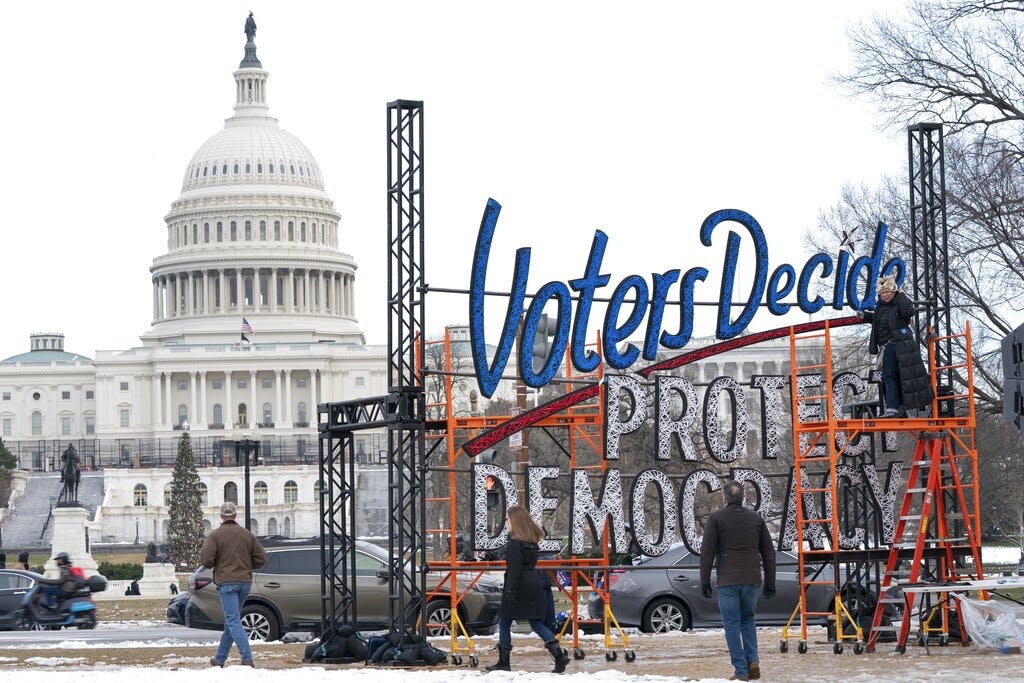Democrats Push To Lower Voting Age To Bolster Prospects at the Polls
While this is not the first push to lower the voting age in America, it has made a splash, in part because of the role of young voters in denying Republicans their “red wave” this year.

Boston’s passage of a measure allowing 16- and 17-year-olds to vote in municipal elections is sparking a new debate over the issue and reviving old arguments from when the topic was last discussed in the 1970s.
The bill passed by the Boston City Council last week would allow citizens aged 16 and older to vote in municipal elections in the city. If the bill gets through state’s legislature and ends up becoming law, Boston would join Oakland and Berkeley in California as well as Takoma Park, Hyattsville, Greenbelt, Riverdale Park, and Mount Rainier in Maryland in allowing 16- and 17-year-olds to vote in local elections.
A co-sponsor of the bill, Council Member Julia Mejia, explained that she expects the bill to meet stiff opposition at the state level, saying, “We know what happens at the State House — most things go there to die.”
She sees the initiative as a precursor to others, however. “I believe this is an opportunity for us to organize other municipalities across the state and create the groundswell [of] support that this initiative deserves,” Ms. Mejia said.
While this is not the first push to lower the voting age in America, it has made a splash, in part because of the role of young voters in denying Republicans their “red wave” this year.
Following the election, one conservative radio personality, Peter Schiff, even suggested raising the voting age, saying, “Let’s raise the voting age to 28. If I was still 18, I’d support this.”
While the idea of raising the voting age hasn’t gained traction among Republican elected officials — perhaps because of the 26th Amendment, which enshrines protections against aged-based discrimination at the polls — the position has gained attention online.
Columnist Jeff Jacoby wrote a piece for the Boston Globe in 2019, when a similar measure was being considered in the U.S. House, advocating for raising the voting age to 25, except for those who join the military.
National Democrats, on the other hand, have introduced legislation to lower the voting age to 16 years old nationwide, most recently in 2021. Congresswoman Grace Meng of New York introduced legislation that would have replaced the 26th Amendment with a similar amendment allowing 16- and 17-year-olds to vote.
“16- and 17-year-olds are legally permitted to work and drive,” Ms. Meng said in a statement. “They also pay federal income taxes. I believe that it is right and fair to also allow them to vote.”
Democrats in Virginia and California have also pushed for measures similar to the one being considered in Boston. In Virginia, a state delegate, Sam Rasoul, introduced a bill that would enact the change statewide.
The proposal reads that “any person who is sixteen years of age or older and is otherwise qualified to vote shall be permitted to register to vote and to vote in local elections.”
In Culver City, California, some were hoping to lower the voting age in local and school board elections to 16 years old. However, the ballot measure failed in this year’s election.
The latest push to lower the voting age has found a foothold in the Democratic Party via organizations like Vote16USA, which advocates for lowering the voting age, and Fair Vote, which advocates for multiple types of voting reform.
Vote16USA cites the need to make voting a habit alongside the fact that 16- and 17-year-olds have a stake in society, pay taxes, and are affected by the decisions of elected officials.
They also argue that lowering the voting age would improve the quality of civic education and engagement, not only of those aged 16 to 17 years, but also those younger and older. It’s a similar line of reasoning that Edward Kennedy used when he advocated for lowering the voting age to 18 from 21 in April 1970.
“By lowering the minimum voting age to 18, we will encourage political activity not only in the 18- to 21-year-old age group, but also in the pre-18-year-old group and the post-21-year-old group as well,” Mr. Kennedy said at the time.
Opponents of lowering the voting age to 16 argue, just as they did in the 1970s, that 16-year-olds are too immature to vote. They also say that lowering the voting age would disproportionately benefit Democrats on Election Day.
While it can’t be said conclusively — due to a lack of polling — who newly enfranchised voters would vote for, it does seem likely that they would prefer Democrats, as most young voters do.

